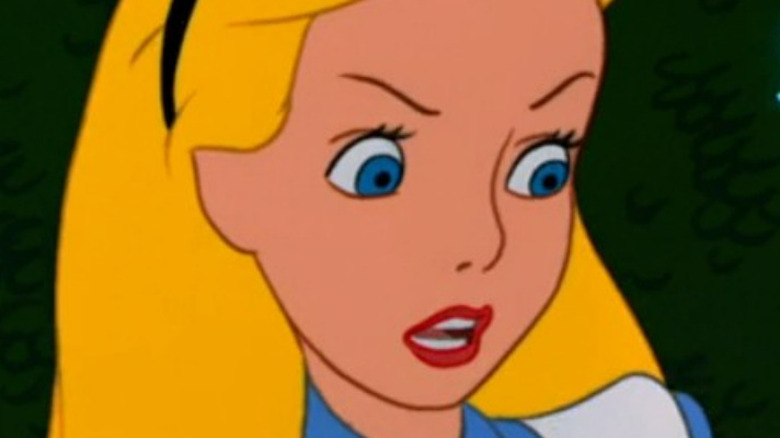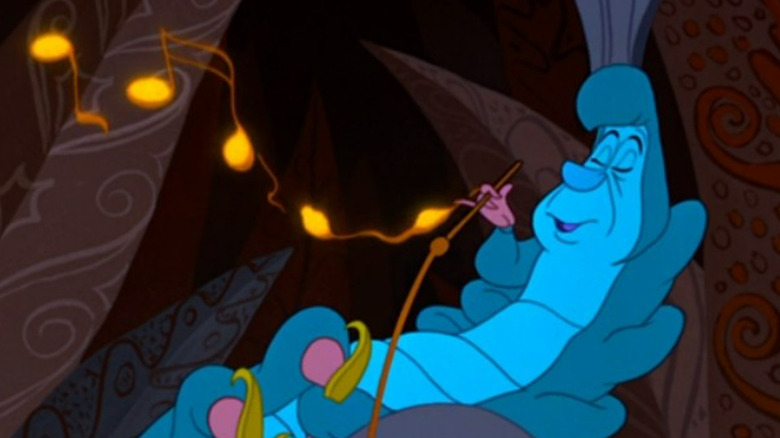The Alice In Wonderland Controversy Disney Probably Doesn't Want You To Remember
Much like with most of its popular media, Disney did not originate the story of "Alice in Wonderland." No, that honor belongs to Lewis Carroll, who wrote the original book, titled "Alice's Adventures in Wonderland," back in 1865 and its sequel, titled "Through the Looking Glass," in 1871.
It is rare, though not unheard of, for Disney to market its animated retellings by publicly discussing the source material. Consider "Frozen," in which Disney highlighted the differences between its tale of sisterly love and the original, which focuses on a villainous, icy witch. In most cases, however, it's likely that the studio would prefer audiences to forget that another version of the story even exists.
Now, whether or not that's inherently immoral is better debated by more educated minds, but in the case of "Alice in Wonderland," Disney's lack of acknowledgment might stem from a desire not to be associated with the writer or his intentions. With that in mind, let's look at some of the potentially troubling reasons that Disney would distance its work from Lewis Carroll.
Carroll's work is laced with explicit drug imagery, intentional or no
Of the issues surrounding Lewis Carroll's work, this is by far the lesser in terms of severity but more prominent in terms of visual representation. It is a commonly held belief that "Alice's Adventures in Wonderland" was heavily inspired by drug use, and even Disney's animated version of the tale showcases explicit drug imagery, although how the studio could've told this particular story without it is a mystery. Consider the potion Alice drinks to change her size or the colorful smoke that pipes from the Caterpillar's mouth after he takes a long drag on his honest-to-god hookah.
As noted by History Collection, Carroll used laudanum, a drinkable mixture containing opium, morphine, and codeine that physicians during his lifetime prescribed for pain. Although it has not been established that he drank laudanum recreationally (via BBC), the drug did have the unfortunate side effect of being highly addictive.
However, there is no evidence to indicate that "Alice's Adventures in Wonderland" was inspired by drug use, and some experts have postulated that the assumed drug connection speaks more to the reader's biases than it does to the author's intentions. Either way, it's shocking that Disney ever felt comfortable creating a children's film that dances so close to subject matter American leaders have historically and aggressively criminalized.

